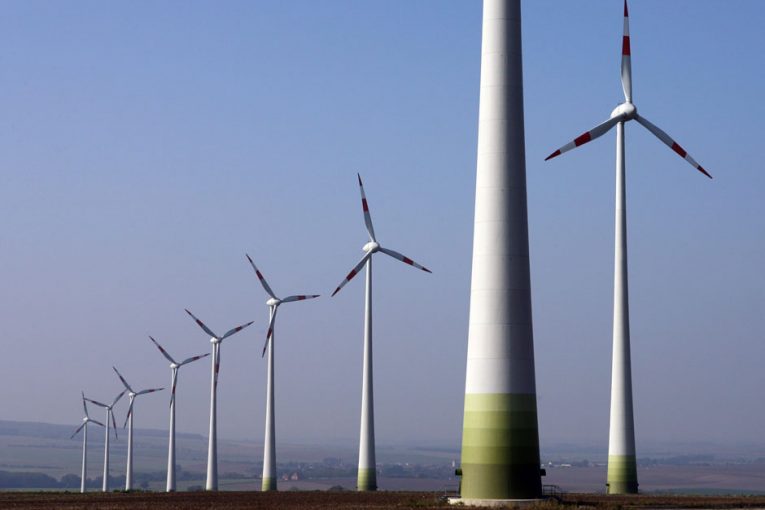
A Canadian manufacturer of railroad freight cars has launched a constitutional challenge aimed at the legitimacy of an Ontario energy fee estimated to have cost the province’s electricity customers $37 billion in less than a decade.
The so-called global adjustment fees are at the heart of a lawsuit filed by Hamilton-based National Steel Car Ltd. against Ontario’s Ministry of the Attorney General, Minister of Energy and the province’s Independent Electricity System Operator (IESO), which manages the power grid and sets the rate that local electricity utilities use to charge customers.
The global adjustment charge is chiefly used to cover the difference between the province’s market price for power and the price guaranteed to hydroelectric, natural gas, nuclear, solar and wind generators through their regulated payments or contracts with the government, as well as the cost of conservation programs. All electricity customers in Ontario pay global adjustment, which can be a separate line or included in the commodity portion of their bill.
But the August lawsuit filed by National Steel Car (NSC) believes the revenue the IESO collects for the global adjustment, from the company “and others,” should be declared “an unconstitutional tax, not a valid regulatory charge.”
The company gives numerous reasons, including that the global adjustment allegedly “redistributes wealth from the consumers of electricity in Ontario to, among others, the generators of renewable electricity.”
The company’s Ontario Superior Court of Justice application also says the fee is “an indirect tax imposed by a regulatory body to fund the Ontario government’s policy initiatives,” such as creating jobs, but one that wasn’t enacted by the provincial legislature.
The reason the company is pursuing the claim is because “they want to stay in business,” according to Jerome Morse, of Morse Shannon LLP, who is representing National.
Morse said National compensates its 1,500 employees much better than competitors in Mexico and the U.S., where, he added, power is being piped in at a rate that can be more than 10 times cheaper.
“So how do you stay in business when you’re paying these hourly rates to your employees and this government tags you with this type of expense that is now, because of the global adjustment since 2008, your third-biggest input cost?” Morse said in a phone interview. “They have materials, they have labour, and they’re paying this tax that the government chooses to call a global adjustment.”
If it is a tax, NSC’s lawsuit says global adjustment should be invalid, because it breaks an Ontario law requiring the government to hold a referendum before it introduces a new tax. No such referendum occurred, the lawsuit says, contravening the Taxpayer Protection Act, a law brought in by former premier Mike Harris’ Progressive Conservative government in 1999.
If it’s unconstitutional or invalid, National doesn’t want the global adjustment charged to them or others, the lawsuit said. The manufacturer also wants to be repaid some or all of the global adjustment it coughed up between July 31, 2015 and July 31, 2017.
While its claims have yet to be proven in court, the lawsuit comes as the global adjustment portion of an Ontario power bill has increased steadily in recent years, helping inflate the cost of electricity for consumers as demand declines.
Ontario’s auditor general reported in 2015 that electricity costs increased and the global adjustment fees skyrocketed from 2006 to 2014, with customers paying a total of $37 billion in global adjustment over the period. The auditor also estimated consumers would fork over another $133 billion in global adjustment fees from 2015 to 2032.
The rise followed the Ontario Liberal government’s investments in energy infrastructure and its signing of contracts for more costly sources of power. The rate owed to those energy companies can be higher than the market rate, helping create the need for the global adjustment to cover the difference.
In 2016, for example, the average Ontario energy price was 1.66 cents per kilowatt hour, according to IESO data, while the average global adjustment fee was 9.66 cents. In 2008, that same ratio was 5.17 to 0.61.Ontario has curtailed its renewable energy procurement, but National’s claim goes hard at green power programs begun in 2009 under then-premier Dalton McGuinty, especially “feed-in-tariff” contracts.
“Since the FIT program pays generators of renewable electricity at rates far in excess of market rates to realize the policy initiatives funded by the Global Adjustment, the behaviour of the consumers of electricity in Ontario who pay for the cost of these policy initiatives is not affected,” said the lawsuit.
A 2016 Hydro-Québec study also showed large-scale power consumers in Toronto and Ottawa pay the highest prices among Canadian cities, and some of the highest prices in North America.
Ontario’s Liberal government enacted a plan this spring to lower household hydro bills by an average of 25 per cent, partly by reducing the amount of global adjustment they’ll pay. The province also expanded a conservation program that can lower costs for industrial consumers.
The provincial government said it is reviewing the “applicant’s materials” and it “would be inappropriate to comment further” as the matter was before the court. A spokesperson for the IESO also said they can’t comment as the matter is before the court.
Morse said they are trying to get the case heard in March.
[email protected]
Twitter: @geoffzochodne
You can read more of the news on source
